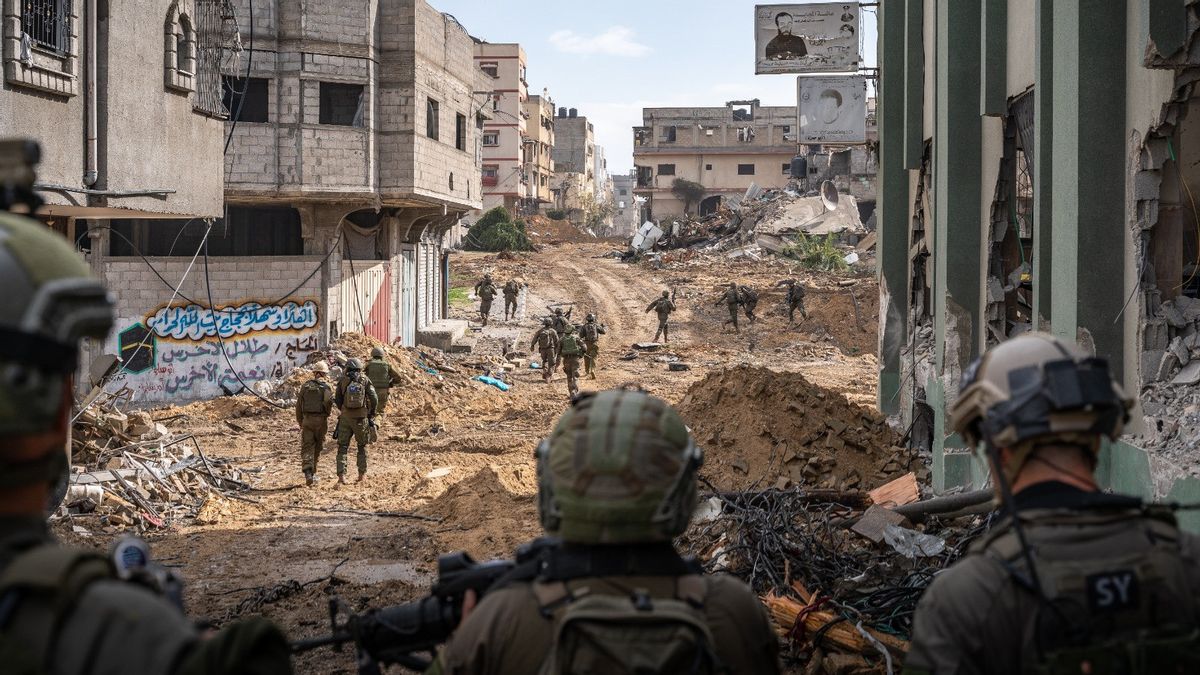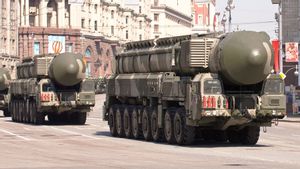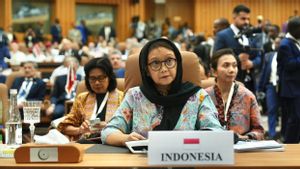JAKARTA - The Palestinian militant group Hamas has reportedly agreed to a three-stage ceasefire and hostage release agreement, which includes the full withdrawal of Israeli troops and an end to the blockade of Gaza, a proposal that Israel considers unacceptable but is willing to continue negotiations.
In a short statement, Hamas said that their political leader Ismail Haniyeh had told Qatari and Egyptian mediators that the group accepted their ceasefire proposal, reported Reuters, May 7.
Based on details announced so far by Hamas officials and an official briefed on the negotiations, the deal the Palestinian group says it has agreed to includes the following:
The first stage:
* 42 day ceasefire period.
* Hamas frees 33 hostages, with Israel freeing Palestinians from Israeli prisons in return.
* Israel withdrew some of its troops from Gaza and allowed the free movement of Palestinians from southern to northern Gaza.
Second Stage:
* The next 42-day period that includes a deal to restore “sustainable calm” in Gaza, according to language described by an official at the talks, said Hamas and Israel had agreed not to discuss a “permanent ceasefire.”
* Complete withdrawal of most Israeli troops from Gaza.
* Hamas released Israeli reservists and some soldiers in exchange for Israel releasing Palestinians from prison.
Third phase:
* Completion of body exchanges and start of reconstruction implementation according to plans supervised by Qatar, Egypt and the UN.
* End the total blockade on the Gaza Strip.
Taher Al-Nono, a Hamas official and Haniyeh adviser, told Reuters the proposal met the group's demands for reconstruction efforts in Gaza, the repatriation of displaced Palestinians and the exchange of Israeli hostages for Palestinian prisoners in Israeli prisons.
Meanwhile Hamas Deputy Chairman in Gaza Khalil Al-Hayya told Al Jazeera television that the proposal consisted of three stages, each lasting six weeks, with Israel to withdraw its troops from Gaza in the second stage.
However, Israeli Prime Minister Benjamin Netanyahu's office later said Hamas' latest ceasefire proposal did not meet Israel's demands, but that it would send a delegation to meet with negotiators to try to reach an agreement.
In a statement, Netanyahu's office added that his war cabinet had approved the continuation of operations in Rafah.
“The war cabinet unanimously decided that Israel is continuing operations in Rafah to exert military pressure on Hamas to accelerate the release of our hostages and other war objectives,” the statement said.
An Israeli official, speaking on condition of anonymity, said that the proposal Hamas accepted was a more modest version of Egypt's offer and included elements that Israel could not accept.
SEE ALSO:
“This appears to be a ruse intended to make Israel look like a party that rejects the deal,” said the Israeli official, who spoke on condition of anonymity.
But an official briefed on the peace talks, who also spoke on condition of anonymity, said the offer Hamas accepted was basically the same as the one Israel agreed to in late April.
The United States, which along with Qatar and Egypt played a mediating role in the talks, said it was studying Hamas' response and would discuss it with Middle Eastern allies.
The English, Chinese, Japanese, Arabic, and French versions are automatically generated by the AI. So there may still be inaccuracies in translating, please always see Indonesian as our main language. (system supported by DigitalSiber.id)
















